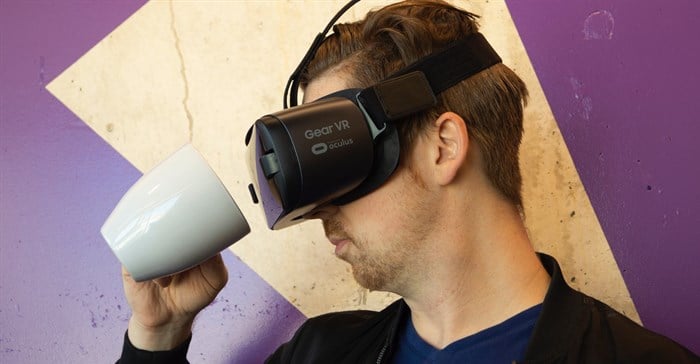
Subscribe & Follow
Jobs
- Experienced Model Booker (Agent) Cape Town
- B2B Marketing Consultant George
- Senior Marketing Coordinator Johannesburg
- Junior Copywriter and Proofreader Cape Town
- Marketing Manager Johannesburg North
- Email Marketing Specialist Johannesburg
- Client Services and Admin Johannesburg
- Creative Director Stellenbosch
- Marketing Manager Johannesburg
- Sales Project Manager Stellenbosch
Maybe the metaverse and VR aren't what we thought they would be

The CES (Consumer Electronics Show) comes and goes every year and yet somehow I manage to miss it and only discover it months later when I think “hey, has the CES happened yet?”
I’m not sure if I miss it because it happens early in January and I spend that part of the year trying to remember how to get up early and go to work or if nobody on any of my social feeds talks about it.
Why does it matter to me? Growing up in the 90s, the CES was the big show. All the latest gaming consoles and peripherals would be released and teenage me would pore over magazine coverage, drooling at each piece of tech.
I was a nerd before it was cool to be a nerd. Wait, is it cool to be a nerd now?
A dipstick for trends
Lately though, CES has come to be a bit of a dipstick as to what is going on with trends like the metaverse and AI.
This year was no different. What is interesting is that while the Metaverse has taken a backseat on the average LinkedIn stream, back at the lab, big tech is working out how to make it more powerful, accessible, and useful.
However, there was one notable out-take from the show, consumers are starting to lose interest in VR and by association, the metaverse.
Maybe it isn’t what we thought it would be
While tech giants are throwing a lot of money at VR (one of the key technologies that brings the metaverse to life), sales are starting to flag with a 2% drop in 2022.
Things like scent technology and haptic feedback suits were on show, but overall, the experiences were either disappointing, expensive, or in most cases, both.
As I’ve gone through the various articles related to the show, it either attracted the most cynical of journalists or things are starting to crystallise a little more. We’re starting to figure out that maybe this isn’t what we thought it would be.
When we began our metaverse journey, there was a lack of clarity as to what we’d be doing with it.
As that fails to materialise in the way we’d hoped, we’re trying to fix it by throwing innovative technologies at the problem. That’s not working either. The question: what’s in it for the consumer?
What’s in it for the consumer?
Maybe the everyday, average Joe/Jolene doesn’t need to worry about the metaverse and VR for now.
VR is very useful in the medical field and corporates are talking about bringing Zoom meetings to life. Only one of those two things is interesting.
On the other hand, the consumer has been told that this alternative to reality will revolutionise the way we work and play. It’ll connect people!
After all the other products that claim to ‘connect’ us, I wonder if there’s already way too much connection.
I’m also starting to believe that when we take a leaf out of Hollywood’s book and overhype everything in the tech industry, we’re always going to end up with unused VR headsets gathering dust in a cupboard. I’m speaking from experience.
Anyway, the point of the story is, we should pay attention to the CES 2024. Only a year away!

Related
Unlocking digital influence in automotive marketing: Free research report launch webinar 6 Mar 2025 Rogerwilco joins the B Corp movement: What it means for employees, clients, and the industry 5 Mar 2025 Ogilvy Africa Network launches Ogilvy One in SSA with Jason Smit as managing partner 28 Jan 2025 #BizTrends2025: Penquin’s Tyrell Stevens - Predictive personalisation transforming digital marketing 23 Jan 2025 #BizTrends2025: Vodacom’s Andisa Ntsubane – The anatomy of winning brands in 2025 22 Jan 2025 4 ways to ensure positive customer experiences in spite of self-service failures 15 Jan 2025










